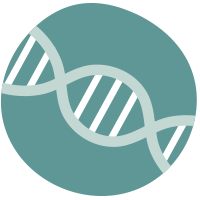
Cell Therapy News
Cell Therapy News is an online resource dedicated to sharing the latest cell therapy, gene therapy, and regenerative medicine research.
Proton Radiation Boosts the Efficacy of Mesothelin-Targeting Chimeric Antigen Receptor T Cell Therapy in Pancreatic Cancer
The authors showed that proton radiation therapy increased mesothelin expression, modulated the immunosuppressive microenvironment, and improved the antitumor response of CAR T therapy, underscoring...
Lipid Nanoparticle-mRNA Engineered Dendritic Cell Based Adoptive Cell Therapy Enhances Cancer Immune Response
Researchers showed that LNP-mRNA engineered dendritic cells could vaccinate recipient mice. Vaccinated mice showed strong anti-tumor T cell responses, rejected tumor challenge, and displayed...
Targeting Endothelial Cell Anergy to Improve CAR T Cell Therapy for Solid Tumors
Investigators discuss how prior or concomitant treatment with an antiangiogenic drug can improve CAR T cell therapy, to become an attractive strategy for the...
Generation of Antitumor Chimeric Antigen Receptors Incorporating T Cell Signaling Motifs
[Science Signaling] The authors developed chimeric adaptor proteins and CAR tyrosine kinases in which the intracellular ζ T cell receptor (TCRζ) chain was replaced with intracellular protein domains to stimulate signaling downstream of the TCRζ chain.
rhIL-7-hyFc, a Long-Acting Interleukin-7, Improves Efficacy of CAR-T Cell Therapy in Solid Tumors
[Journal For Immunotherapy of Cancer] CAR-T cells targeting GPC2, GPC3, and MSLN were used in combination with NT-I7 to assess the anticancer activity.
Surface Nanocoating of Bacteria as a Versatile Platform to Develop Living Therapeutics
[Nature Protocols] The authors used interfacial self-assembly to prepare lipid membrane-coated bacteria, exhibiting increased resistance against a variety of harsh environmental conditions owing to the nanocoating’s protective capability.
Targeting Tumor-Associated Sialic Acids Using Chimeric Switch Receptors Based on Siglec-9 Enhances the Antitumor Efficacy of Engineered T Cells
[Cancer Immunology Research] Scientists reported that IFNγ, a potent immunomodulator secreted in the tumor microenvironment, can induce α2,6 hypersialylation in cancer cell lines derived from various histologies.
Allogeneic CD19-Targeted CAR-T Therapy in Patients with Severe Myositis and Systemic Sclerosis
[Cell] The authors genetically engineered healthy-donor-derived, CD19-targeting CAR-T cells using CRISPR-Cas9 to address the issue of immune rejection and treated one patient with refractory immune-mediated necrotizing myopathy and two patients with diffuse cutaneous systemic sclerosis with these cells.
Click Editing Enables Programmable Genome Writing Using DNA Polymerases and HUH Endonucleases
[Nature Biotechnology] Investigators developed click editing, a genome writing platform that couples the advantageous properties of DNA-dependent polymerases with RNA-programmable nickases to permit the installation of a range of edits, including substitutions, insertions and deletions.
Autologous Hematopoiesis Stem Cell Transplantation (AHSCT) for Treatment-Refractory Autoimmune Diseases in Children
[RMD Open] The authors evaluated the long-term effectiveness and safety of autologous hematopoiesis stem cell transplantation for severe, refractory autoimmune diseases in pediatric patients.
Riding the Storm: Managing Cytokine-Related Toxicities in CAR-T Cell Therapy
[Seminars In Immunopathology] Investigators summarize the current state of the field of CAR-T-associated toxicities, focusing on underlying biology and how this informs toxicity management and prevention.
In Utero Gene Therapy and its Application in Genetic Hearing Loss
[Advanced Biology] For major alpha thalassemia and severe osteogenesis imperfecta, in utero stem cell transplantation has entered the Phase I clinical trial stage.
Published since 2002, Cell Therapy News is our longest running online publication. Our editorial team curates the top publications, reviews, and news on in vivo gene therapy, cell therapy, and immunotherapy research. With over 15,000 subscribers and followers across our website, email newsletter, and Twitter feed, we are proud to facilitate the communication of cutting-edge cell therapy innovations.

 Cancer Stem Cell News
Cancer Stem Cell News Cell Therapy News
Cell Therapy News Dermal Cell News
Dermal Cell News Endothelial Cell News
Endothelial Cell News ESC & iPSC News
ESC & iPSC News Extracellular Matrix News
Extracellular Matrix News Hematopoiesis News
Hematopoiesis News Hepatic Cell News
Hepatic Cell News Human Immunology News
Human Immunology News Immune Regulation News
Immune Regulation News
 Intestinal Cell News
Intestinal Cell News Mammary Cell News
Mammary Cell News Mesenchymal Cell News
Mesenchymal Cell News Muscle Cell News
Muscle Cell News Neural Cell News
Neural Cell News Organoid News
Organoid News Pancreatic Cell News
Pancreatic Cell News Prostate Cell News
Prostate Cell News Pulmonary Cell News
Pulmonary Cell News
